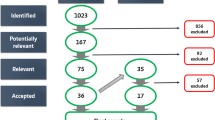Abstract
Measuring the welfare cost of climate change policies is a real challenge, raising difficult issues of micro- and macro-economics: cost-benefit analysis on the one hand, foreign trade and international specialization on the second hand. At the domestic level the possible existence of distortions, in particular in the fiscal system, may either increase or alleviate the welfare cost of a climate change policy, as illustrated by the debate on “double dividend”. Effects on the prices in international markets and distorted competition between countries committed to abate (Annex B) and uncommitted countries affect both the sharing of the burden, in particular through the change in the terms of trade, and the allocation of activities with the frequently waved threat of “delocalization”. Based on a companion theoretical analysis, the present paper aims at putting order in the welfare analysis of climate change policy and to present and compare various estimations, issuing from macro- or computable general equilibrium models. Beside the global welfare cost, the paper focuses on the marginal abatement cost and its relation to the carbon price.
Most present conceptual and applied analysis is based on the case of a single domestic household-consumer. Taking into account several consumers raises new challenges, concerning equity but even more fundamentally the mere definition of fiscal distortion, which have not yet been really addressed.
Similar content being viewed by others
References
M. Babiker, L. Viguier, J. Reilly, A.D. Ellerman and P. Criqui, The welfare costs of hybrid carbon policies in the European Union, MIT Joint Program on the Science and Policy of Global Change, Report 74, Cambridge, MA (2001).
A.L. Bernard, L'utilisation des modèles d'équilibre général calculables pour l'analyse coût-bénéfice et l'évaluation des politiques, Economie et Prévision 136(5) (1998) 3, 18.
A.L. Bernard, The pure economics of tradable pollution permits, Communication to the seminar organized by the International Energy Agency, the Energy Modeling Forum and the International Energy Workshop, Paris, June 16-18 (1999).
A.L. Bernard, Toward a future for the Kyoto Protocol: Some simulations with GEMINI-E3, Communication presented at the Annual Congress of the French Association of Economic Science (AFSE), Paris (2001).
A.L. Bernard, C. Fischer and M. Vielle, Is there a rationale for rebating environmental levies?, RFF Discussion Paper 01-31 (2001).
A.L. Bernard and M. Vielle, GEMINI-E3, un modèle d'équilibre général national-international économique, énergétique et environnemental, Economie et Prévision 136 (1998) 5.
A.L. Bernard and M. Vielle, Comment allouer un coût global d'environnement entre pays: permis négociables VS taxes ou permis négociables ET taxes?, Economie Internationale 82 (2000) 103–135.
M. Boiteux, Sur la Gestion des Monopoles Publics Astreints à l'Equilibre Budgétaire, Econometrica 24 (1956) 22–40.
P. Criqui, F. Cattier and Alii, POLES: A world energy model developed in the framework of the EC-DGXII JOULE Program Climate Technology Strategy within Competitive Energy Markets towards New and Sustainable Growth, IEPE (1999).
P.A. Diamond and J. Mirrlees, Optimal taxation and public production, American Economic Review 61 (1971) 8-27, 261–278.
Energy Information Administration, Impacts of the Kyoto Protocol on U.S. Energy Markets and Economic Activity, Report of the Energy Information Administration, U.S. Department of Energy, Washington (1998).
Energy Information Administration, International energy outlook, March 1999, raport DOE/EIA 0484 (1999).
R. Guesnerie, A Contribution to the Pure Theory of Taxation (Econometric Society Monographs, Cambridge University Press, 1995).
P.-N. Giraud, N. Jestin-Fleury and A. Ayong Le Kama, Effet de serre: modélisation économique et decision publique, Rapport du Commissariat Général du Plan, la Documentation Française (2002).
L.A. Goulder, Do the cost of a carbon tax vanish when interactions with other taxes are accounted for, NBER Working Paper 4061 (1992).
W.D. Nordhaus, A sketch of the economics of the greenhouse effect, American Economic Review 81(2) (1991).
W.D. Nordhaus, The cost of slowing climate change: A survey, The Energy Journal 12(1) (1991) 37–65.
W.D. Nordhaus, Rolling the 'DICE': An optimal transition path for controlling greenhouse gases, Resource and Energy Economics 15 (1993) 27–50.
W.D. Nordhaus, After Kyoto: Alternative mechanisms to control global warming, Paper prepared for the meetings of the American Economic Association and the Association of Environmental and Resource Economists (January 2002).
A. Sandmo, Optimal taxation in the presence of externalities, Swedish Journal of Economics 77 (1975) 86–98.
M. Vielle ans A.L. Bernard, Impact d'une rigidité des salaires sur le coût de mise en oeuvre du protocole de Kyoto, mimeo MELT/CEA (2001).
J. Weyant, EMF 18 Model Comparisons, February 24 (2000).
J. Weyant, Status report on the EMF 18 and EMF 19 Studies, Presented at the Joint IEW/IEA/EMF Meeting, Stanford University, June 21 (2000).
J. Weyant and J.N. Hill, The costs of the Kyoto Protocol: A multimodel evaluation-Introduction and overview, The Energy Journal, special issue (May 1999).
Author information
Authors and Affiliations
Rights and permissions
About this article
Cite this article
Bernard, A.L., Vielle, M. Measuring the Welfare Cost of Climate Change Policies: A Comparative Assessment Based on the Computable General Equilibrium Model GEMINI-E3. Environmental Modeling & Assessment 8, 199–217 (2003). https://doi.org/10.1023/A:1025595223960
Issue Date:
DOI: https://doi.org/10.1023/A:1025595223960




